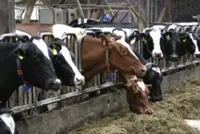My daughter turned 15 earlier this year. Aside from thinking how insanely fast her childhood sped by, I also couldn’t help thinking about the future that she faces as a young woman, and the kind of world that awaits her.
In some ways, the world is far better now for young women than ever before, in education and careers, for instance. There is no bar on schooling for girls anywhere in the world except in Afghanistan, although financial constraints still significantly limit girls’ education.





